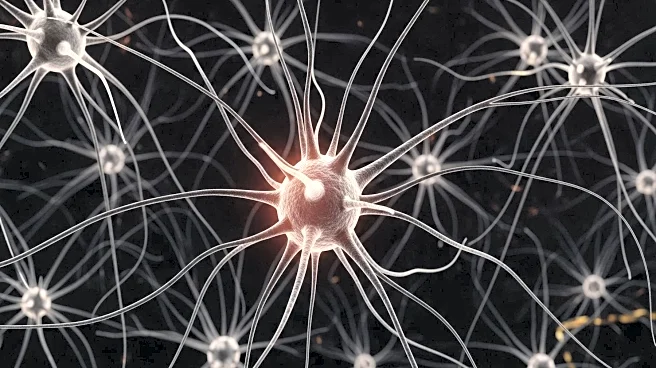What's Happening?
Recent research suggests that the human brain operates near a critical point between order and disorder, a concept known as the critical brain hypothesis. This idea posits that the brain's inherent 'chaos' is essential for its extraordinary functions, including intelligence, consciousness, and creativity. Researchers like Keith Hengen and Karim Jerbi are exploring how this balance allows for efficient information processing and adaptability. The hypothesis suggests that the brain's electrical activity follows patterns similar to natural phenomena like avalanches, where small events can have significant consequences. This understanding could have implications for diagnosing brain disorders and enhancing cognitive abilities.
Why It's Important?
The critical brain hypothesis offers a new perspective on understanding brain function and its relationship to intelligence and creativity. By recognizing the brain's proximity to a critical point, researchers can better understand how it processes information and adapts to new situations. This insight could lead to advancements in diagnosing and treating neurological disorders, as well as enhancing cognitive performance through targeted interventions. The research also highlights the potential for meditative practices to influence brain activity, offering new avenues for improving mental flexibility and resilience.
Beyond the Headlines
The concept of brain criticality challenges traditional views of brain function, suggesting that a certain level of 'chaos' is necessary for optimal performance. This understanding could lead to a reevaluation of how we approach mental health and cognitive enhancement, emphasizing the importance of maintaining a balance between order and disorder in brain activity. The research also raises questions about the role of sleep in restoring the brain's critical state, offering potential insights into the function of sleep and its impact on cognitive health.











